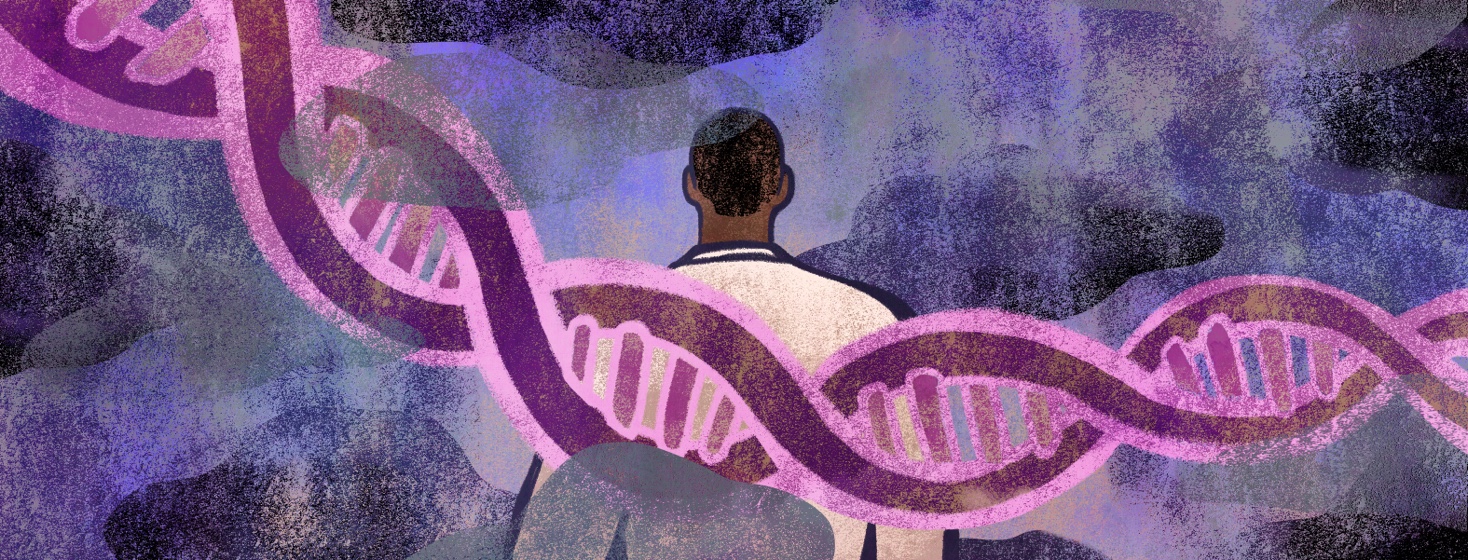Prostate Cancer and Black Men: A Genetic Breakthrough?
While it is well-understood that prostate cancer rates vary among people of different races and ethnicities, it is not clear why. In the United States, Black men are more likely than white men to:
- Be diagnosed with prostate cancer
- Have distant metastases (spread) of prostate cancer
- Die of prostate cancer1
Studies have helped us better understand why this happens, and, more importantly, how to undo this burden.
Why do prostate cancer rates vary among people of different races?
In general, racial and ethnic disparities (differences) in health are often due to discrimination and are not necessarily caused by biological differences between people. For instance, in certain countries, people of all races or ethnicities may not have the same access to healthcare and screenings. Some people may also receive better care than others.
In the case of prostate cancer, the effects of discrimination may run even deeper. Black and other non-white men with prostate cancer are under-represented in some cancer studies, meaning that there is not enough data about them.2
This legacy of racism in medicine has led to some other stunning statistics: Due to lack of access to care, Black men in America are often diagnosed late, meaning that they are more likely to have a higher stage of prostate cancer when diagnosed. They may also be less likely to get care that follows treatment guidelines.1
Finally, Black men are also more likely to have what are called comorbid conditions. These are conditions that people may have in addition to prostate cancer. Certain comorbidities, such as cardiovascular disease and diabetes, can have an impact on your chance of surviving cancer.1
These factors certainly do not help, but according to research published in 2020, genes may also play a role.
What lies beneath: Could genes be a factor?
Prostate cancer is known to be highly heritable, meaning that it can be passed down from your parents or grandparents. That may be why researchers are focusing on genes.3
Random mutations (basically, errors that are made when a cell copies itself) sometimes change the genes in cells, causing them to reproduce uncontrollably. This is how tumors form. These mutations can sometimes be caused by being exposed to toxins, such as cigarette smoke or Agent Orange. When people with certain inherited genes experience cell mutations, these genes can make cells more likely to develop into certain cancers.4
So far, genetic studies of prostate cancer have mostly focused on men of European descent. However, a 2017 study found that even in countries where people of various races have similar access to screening and treatment, as well as similar exposures to things that can put people at higher risk of prostate cancer, men of African descent still had higher rates of prostate cancer as well as worse outcomes. The researchers concluded that more studies need to be done to better understand the “underlying genetic basis of prostate cancer.”3
Black men may be more likely to have certain gene mutations
Data reviewed this September in the New England Journal of Medicine examined tumor genomic profiles across a diverse range of people with different stages of prostate cancer.
The study authors found that Black men with prostate cancer were more likely than white or Asian men to have certain tumor mutations. In particular, Black men with metastatic prostate cancer were more likely to have mutations in their AR genes (which help to create androgen receptors) and DNA-repair genes, along with other so-called actionable gene mutations.2
This is notable because actionable gene mutations can be targeted by precision oncology drugs. These are treatments that are customized to a person’s genes.
These findings are also important because they show that Black men may be at a higher risk for prostate cancer at a genetic level, and therefore require better access to screening and precision treatments. Ultimately, deeper study of genetic differences in prostate cancer tumors may help reverse this disparity and improve prostate cancer outcomes among Black men.

Join the conversation